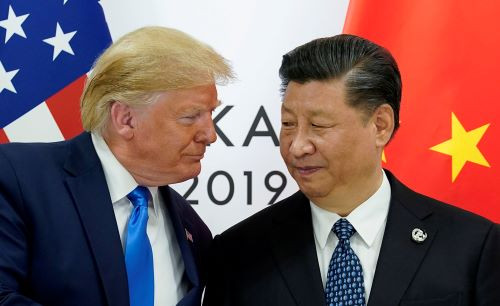A report published last Sunday claimed that China's top priority in phase one of the United States-China trade deal is pushing for the removal of existing tariffs imposed on Chinese goods.
Sources direct from the trade talks revealed that removing the tariffs is the the only way that China would push through with the trade deal.
According to a report published in Fox Business, China continues to push for the removal of existing and not planned tariffs before it would consider agreeing to the US-China trade deal. It was also revealed that the US had been resisting such demands. The report claimed that a source indicated that the tariff rates were the only bargaining weapons of the country in the trade war.
Last Tuesday, US President Donald Trump announced that China and the US was at its final steps in completing phase one of the trade deal. However, after 16 months of the trade talks, top trade negotiators had decided to continue their talks on the remaining issues.
Since then, trade experts who had close ties with the White House revealed last month that China has invited US Trade Representative Robert Lighthizer and the US Treasury Secretary Steven Mnuchin to proceed with the discussions on the trade issues in Beijing.
Last Tuesday, US Senate Finance Committee Chairman Chuck Grassley then announced the invitation and noted that the trade talks have been progressing.
In other news, Reuters reported that supply chains had been greatly affected by the US-China trade war. It was shown that one-quarter of multinational firms have yet to create contingency plans in the event that the trade talks would not commence soon.
The information was relayed through a survey provided by DHL. It was shown that the supply chain risk management software platform run by Deutsche Post AG's courier unit received 267 anonymous responses from supply chain executives. The survey then revealed that more than half of those respondents were from the United States and the European Union.
It was shown that 48 percent of those operating within the engineering and manufacturing industry had no contingency plans. Consequently, about 40 percent of those operating within the automotive mobility sector also lacked contingency plans. The report indicated that the industries are the ones heavily targeted in the US-China trade war.
According to the product director for risk monitoring at DHL Resilience360 Shehrina Kamal, most supply chain professionals are still oblivious about the effects of the trade war. She said that the the situation is new to the industries and that they are merely waiting for the developments of the trade deal and learn then and there how to deal with the consequences.






